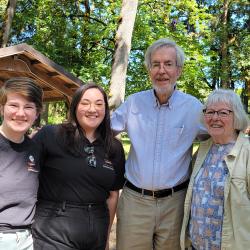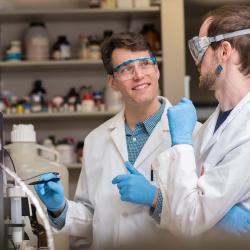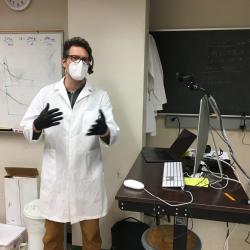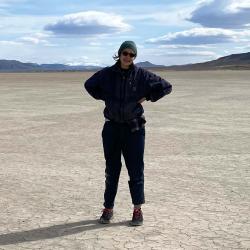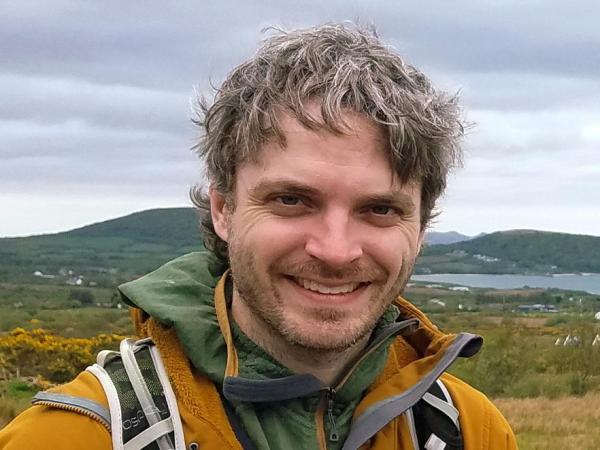
Richard B. Cooley
Richard B. Cooley
Research
The goal of my research is to understand the molecular mechanisms by which protein post-translational modifications (PTMs), such as phosphorylation and nitration, regulate and diversify protein function. PTMs serve to alter protein structure, catalytic activity, cellular localization and ability interact with other proteins in response to cellular signals. The dysregulation of PTMs can leave proteins uncontrollably active or inactive, resulting in many diseases including cancer.
Making proteins with specific PTMs to study them has been a long-standing challenge in the field. To expand our access to PTM-proteins, we develop and optimize Genetic Code Expansion technologies in which non-canonical amino acids (ncAA), or unnatural amino acids, can be incorporated directly into proteins during translation, effectively creating organisms with 21 or 22 amino acid genetic codes. We do this by employing a variety of molecular biology and directed evolution techniques, aided by our structural biology and enzymology backgrounds. These GCE technologies allow us to install modified amino acids with PTMs already on them into proteins at genetically programmed sites, without the need of PTM "writer" proteins, such as kinases. We then use a multitude of analytical techniques to study the structure and function of these PTM-proteins, including x-ray crystallography, small angle x-ray scattering, NMR, proteomics, cell biology and microscopy.
As part of these efforts, under the direction of Dr. Ryan Mehl, we have recently started the first Genetic Code Expansion national center, called the GCE44All Center. I serve as the Associate Director of the Center, leading efforts to advance GCE systems for installing PTMs as well as biophysical probes. Our primary Center mission is to develop, optimize and standardize GCE technologies so that they can be disseminated and made accessible to all labs around the world.
Research Interests
- Structural Biology
- Protein Engineering
- Genetic Code Expansion
- Protein Post-translational modifications
Education
Post-doc 2012-2016, Cornell University
Post-doc 2011-2012, Oregon State University
Ph.D. 2011, Oregon State University
B.A. 2004, Middlebury College
Awards
- NIH Ruth Kirschstein Post-doctoral fellowship, 2013-2015
- Oregon State University P.F. and Nellie Buck Yerex Graduate Fellowship, 2010
